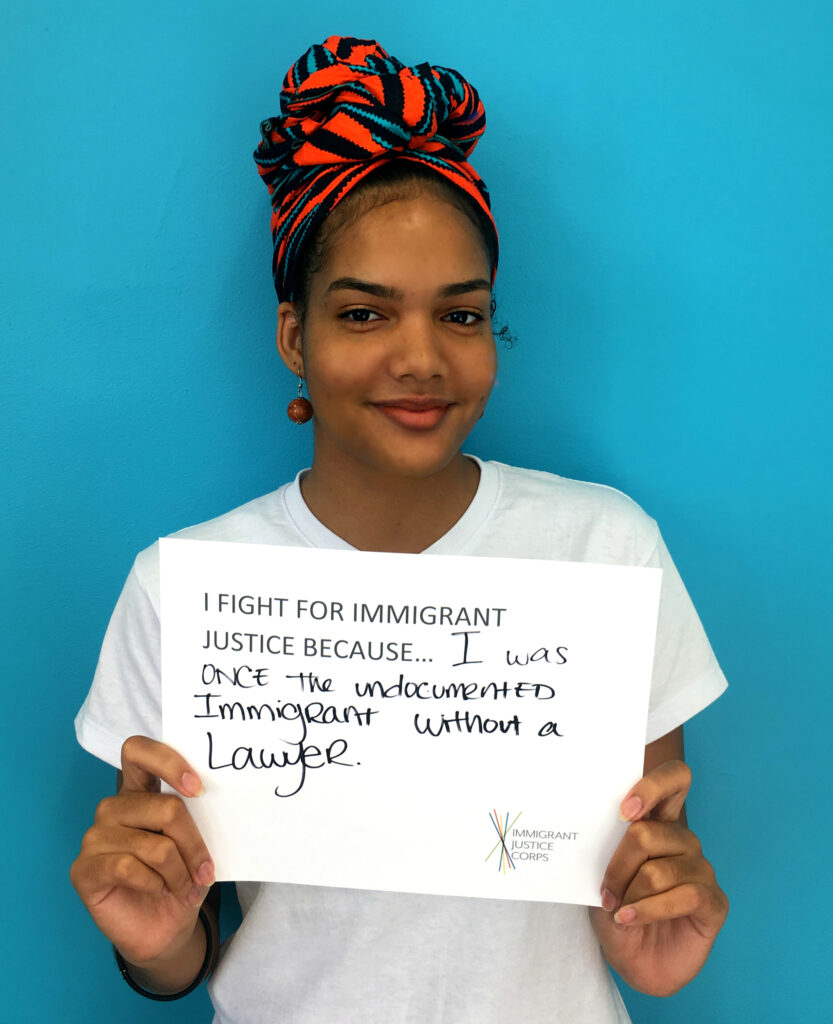“No human should be expendable...”
The coronavirus pandemic has created a whole new layer of complexity to the way our Fellows advocate for the immigrant communities they serve.
For Fellows working with detained clients, this has meant doing everything possible to obtain their release and protect their due process rights. First year Justice Fellow Cindy Ramirez is part of the deportation defense team at BakerRipley, a legal services provider in Houston, Texas. She shared how for many of her clients, the cruelty of detention is made even more fraught by this global health crisis.
Cindy’s client *Anthony, 27, was detained in solitary confinement due to a mental health condition at Montgomery Processing Center (MPC) in Conroe, Texas. For two weeks Anthony was coughing non-stop, fearful that he had contracted COVID-19. An immigration judge denied Cindy’s request for more time to prepare the case, and she appeared at Anthony’s initial master calendar hearing over the phone. “The immigration judge was more concerned about ‘moving the case along’ than Anthony’s due process rights and his health,” said Cindy. So, Anthony and Cindy continued working on his immigration case over the phone while also preparing a parole request for Immigration and Customs Enforcement (ICE) to release him because he had an underlying medical condition that made him extremely vulnerable to the coronavirus.

It wasn’t until a guard at the detention center tested positive for coronavirus a few weeks later, that Anthony’s ICE officer agreed to his release. Without coordinating the timing of his release with Cindy, ICE dropped Anthony off in the parking lot of the immigration court. Fortunately, Cindy and BakerRipley found out about his release and quickly arranged transportation for Anthony’s aunt to pick him up.
“While relieved, I feel immense guilt because thousands are still detained in the greater Houston area alone. Social distancing in these facilities is impossible. Even Anthony, who was in solitary confinement, got sick while detained,” said Cindy.
The emotional toll of the pandemic and the cruelty of detention make for a damaging combination. “Many of us are relying on connection to loved ones in order to get through these difficult times. A detained person’s ability to see or speak to his, her, or their loved ones is already incredibly difficult, but the ongoing pandemic and inhumane practices by ICE and the private detention centers have made this even more difficult.”
Even amidst a global health crisis, the deportation machine hasn’t slowed down. “Detained immigrants are still expected to prepare their immigration cases and attend court while terrified, like Anthony was, of coronavirus infection,” said Cindy. “In addition, access to legal representation and advice was already a grave issue for detained people. The COVID-19 crisis has made this issue much worse, meaning that individuals in detention feel forced to take removal orders in order to escape the terror of being detained during a pandemic.”
While IJC Fellows like Cindy continue fighting to protect their clients, she said releasing people from immigration detention now should not be a partisan issue – it is a matter of public health. “No human should be expendable during the coronavirus pandemic.”
